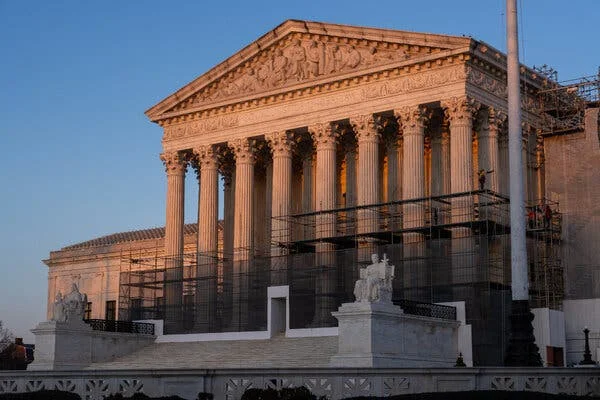
Could America’s Venezuelan Community Face an Uncertain Future After Major Ruling?
In a decision that's shaking communities across Florida, the U.S. Supreme Court's ruling on Temporary Protected Status (TPS) has left hundreds of thousands of Venezuelans in limbo. This move, stemming from the Trump administration's efforts to revoke protections, raises urgent questions about potential deportations and the broader implications for immigrant rights in the U.S. As Florida hosts the largest Venezuelan population in the country, this ruling not only threatens families but also underscores the intersection of politics, economy, and human rights in immigration policy.
The Supreme Court's decision, handed down recently, immediately strips TPS from nearly 350,000 Venezuelans, allowing the Trump administration to proceed with plans that could lead to deportations back to a nation plagued by economic collapse and political turmoil under President Nicolás Maduro. Venezuelans like Cecilia Gonzalez Herrera, who fled persecution with her family eight years ago, are voicing their devastation. "Both of my parents were very vocal against the Maduro regime," Herrera shared, highlighting the personal stakes. Her story is echoed by many in Florida's Venezuelan enclave, known as 'Doralzuela,' where residents fear losing work permits and facing deportation to unsafe conditions.

Analysts compare this ruling to previous immigration crackdowns, noting it as one of the largest single actions stripping status in modern history. Adelys Ferro, executive director of the Venezuelan-American Caucus, points out the contradiction: the U.S. State Department recently issued a travel advisory warning against visiting Venezuela due to risks like crime and civil unrest, yet it's pushing for deportations. This has sparked debates over the administration's claims that conditions in Venezuela have improved, a assertion many, including UCLA law professor Ahilan Arulanantham, call unfounded. "The humanitarian and economic impact will be felt immediately," he warned.
In Florida, the ripple effects are already visible. Entrepreneurs like Elias Wardini and Pedro Boj, who run a Venezuelan-American restaurant chain, report declining sales and potential staff losses as TPS holders face expired work permits. Jhon Rueda, a car wash worker who escaped threats from Maduro-backed groups, describes daily fear: "It’s fear every day." Despite some remorse among Venezuelan-Americans who supported Trump, reactions from Republican officials have been muted, with Congresswoman Maria Elvira Salazar expressing disappointment but little action.

Legal challenges continue, with cases in lower courts questioning the constitutionality of these moves. Similar revocations affect other groups, like Haitians and Afghans, highlighting a broader policy shift. This decision not only disrupts lives but also strains local economies reliant on immigrant labor.
In summary, the Supreme Court's ruling on TPS for Venezuelans exposes the fragility of temporary protections and the human cost of policy changes. What does this mean for future immigration reforms and the American dream for those fleeing crisis? Share your thoughts in the comments below and help spread this story to spark broader conversation.
Related issues news
What is TPS for Venezuelans?
In 2023, the Biden administration added Venezuela to the TPS program – an initiative aimed at safeguarding individuals who cannot safely return to their home countries. The Biden DHS based this on a determination that conditions in the country prevented the safe return of Venezuelan nationals.
How did the Supreme Court vote on Venezuelans?
May 19 (Reuters) - The U.S. Supreme Court let Donald Trump's administration on Monday end temporary protected status that was granted to hundreds of thousands of Venezuelans in the United States by his predecessor Joe Biden, as the Republican president moves to ramp up deportations as part of his hardline approach to ...
What are deportation protections?
Temporary Protected Status allows people to live and work in the US legally if their home countries are deemed unsafe due to things like countries experiencing wars, natural disasters or other 'extraordinary and temporary' conditions.